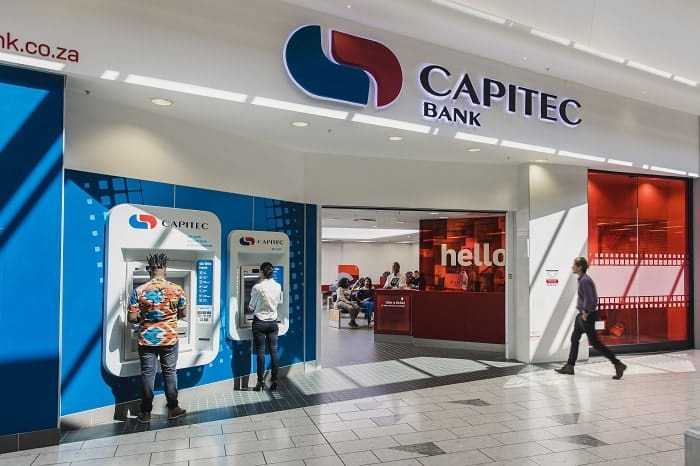News
How to Get Your Passport or Smart ID at the Bank in 2025: What’s New and Where to Go

Getting your smart ID or renewing your passport in South Africa has become a lot easier in 2025 at least for those living near one of the 32 bank branches now offering these services.
The Department of Home Affairs (DHA) and several major banks have joined forces to digitise and expand smart ID and passport processing. It’s part of a growing effort to make government services more accessible, efficient, and most importantly less dependent on long queues at Home Affairs offices.
A New Era For Smart ID Applications
For years, South Africans have been able to apply for smart IDs and passports at select bank branches through the eHomeAffairs platform. But the list remained painfully short, hovering around 30 branches nationwide since 2016.
Now, that’s changing. A fresh digital partnership between Home Affairs and nine banks including Capitec, FNB, Standard Bank, Nedbank, and Absa aims to expand access significantly.
Capitec, South Africa’s biggest bank by customer base, is joining the rollout in late 2025. The bank confirmed that it has been testing systems and will showcase its technology at Johannesburg’s Innovation Exchange on 20 November. A handful of branches will form part of the initial rollout, focusing on areas with limited Home Affairs access.
“Our priority is to expand client access while safeguarding service quality,” Capitec said in a recent statement.
Capitec plans to have 100 branches offering smart ID applications by March 2026 and as many as 300 by the end of that year. Collectively, all nine banks are expected to offer the service at more than 150 branches by March 2026 and eventually at over 800 nationwide.
What About Passports?
If you were hoping to renew your passport at your local bank this year, you might need to wait a little longer.
Home Affairs Minister Leon Schreiber confirmed that the first phase of the new digital partnership focuses solely on smart ID reissues including replacements for the old green ID book. Passport applications will come later, once the integration platform and biometric workflows are fully in place.
This expansion marks a key shift from the previous system, which required Home Affairs to duplicate both staff and equipment at each participating branch. The new model instead relies on a secure digital API (application programming interface) that connects bank systems directly to the Home Affairs backend allowing for digital applications, biometric enrolment, and document collection without physical duplication.
Where You Can Apply Right Now
According to the eHomeAffairs platform, 32 bank branches across South Africa currently support smart ID and passport applications.
Here’s the breakdown by province:
-
Gauteng (19 branches) – including Absa Sandton, FNB Merchant Place, Nedbank Rivonia, and Standard Bank Killarney Mall.
-
Western Cape (5 branches) – such as FNB Green Point and Standard Bank Canal Walk.
-
KwaZulu-Natal (3 branches) – including FNB Cornubia and Standard Bank Kingsmead.
-
Eastern Cape (2 branches) – Absa Port Elizabeth and Standard Bank Newton Park.
-
Northern Cape (1 branch) – Standard Bank Kathu Mall.
-
Limpopo (1 branch) – FNB Burgersfort.
-
Mpumalanga (1 branch) – Nedbank Nelspruit.
Free State and North West are not yet covered but with the digital expansion underway, that’s expected to change in 2026.
Public Reaction: Hope, Hiccups, And High Demand
On social media, South Africans have greeted the expansion with cautious optimism. Many have shared relief at finally being able to book appointments closer to home, while others expressed frustration at how quickly available time slots fill up on the eHomeAffairs system.
Twitter and Facebook users have also praised Capitec’s involvement, calling it a “game-changer” for people in smaller towns who often have to travel long distances for simple services.
Yet, some remain skeptical about whether the technology will run smoothly. As one X, user posted, “I’ll believe it when I can get my ID in under 30 minutes without the system going offline.”
Why It Matters
For a country still grappling with service delivery backlogs, this digital partnership could be a quiet revolution. By connecting government systems with banking infrastructure, Home Affairs can scale faster, reduce costs, and bring essential identity services to where people already bank.
It’s also a major step toward a more connected digital ID ecosystem one that could eventually power faster access to social services, travel documents, and even e-government platforms in the future.
As 2025 draws to a close, South Africans can expect a more modern, accessible, and tech-driven way to secure their most important documents one bank branch at a time.
{Source:MyBroadband}
Follow Joburg ETC on Facebook, Twitter , TikTok and Instagram
For more News in Johannesburg, visit joburgetc.com



























